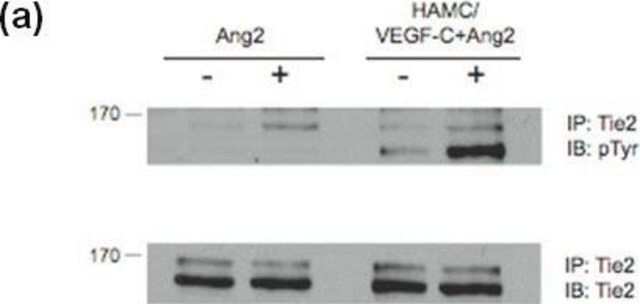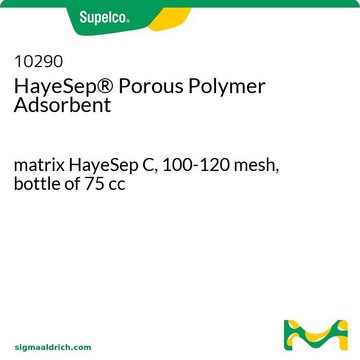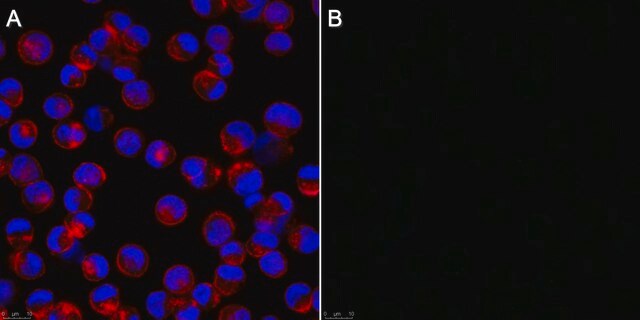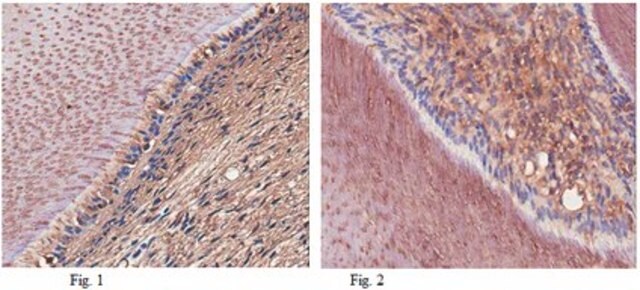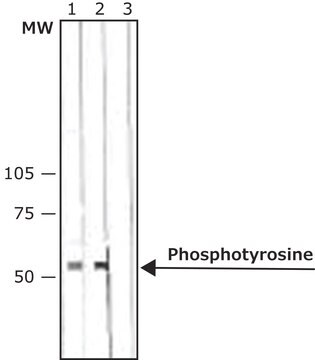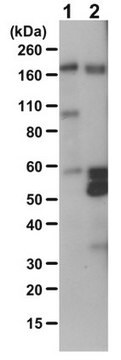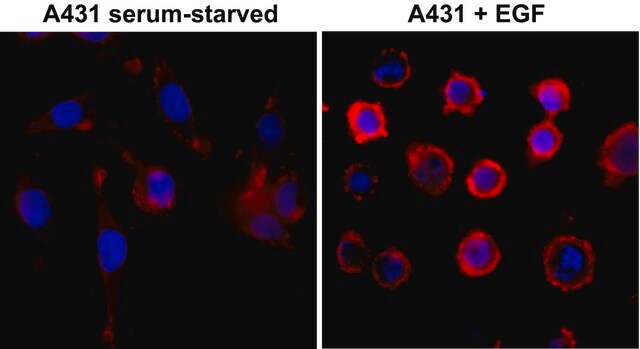16-204
Anti-Phosphotyrosine Antibody, recombinant clone 4G10®, biotin conjugate
clone 4G10®, Upstate®, from mouse
About This Item
Produits recommandés
Source biologique
mouse
Niveau de qualité
Conjugué
biotin conjugate
Forme d'anticorps
purified antibody
Type de produit anticorps
primary antibodies
Clone
4G10®, monoclonal
Réactivité de l'espèce (prédite par homologie)
all
Fabricant/nom de marque
Upstate®
Technique(s)
western blot: suitable
Isotype
IgG2bκ
Conditions d'expédition
wet ice
Modification post-traductionnelle de la cible
unmodified
Informations sur le gène
human ... PID1(55022)
Description générale
Product Description: Produced from CHO cells expressing the 4G10 antibody heavy and light chain cDNAs. Heavy chain C-terminus has a hexa-histidine tag for purification and immobilization via nickel affinity matrices. Cross-linked to biotin. Patent pending.
Spécificité
Immunogène
Application
Signaling
General Post-translation Modification
Qualité
Western Blot Analysis:
0.5-2 μg/mL of this lot detected tyrosine phosphorylated proteins in a RIPA lysate of EGF-stimulated A431 carcinoma cells.
Description de la cible
Forme physique
Stockage et stabilité
For maximum recovery of product, centrifuge the vial prior to removing the cap. DO NOT FREEZE!
Remarque sur l'analyse
Positive Antigen Control: Catalog #12-302, EGF-stimulated A431 cell lysate. Add 2.5µL of 2-mercaptoethanol/100µL of lysate and boil for 5 minutes to reduce the preparation. Load 20µg of reduced lysate per lane for minigels.
Autres remarques
Informations légales
Clause de non-responsabilité
Vous ne trouvez pas le bon produit ?
Essayez notre Outil de sélection de produits.
Code de la classe de stockage
10 - Combustible liquids
Classe de danger pour l'eau (WGK)
WGK 2
Certificats d'analyse (COA)
Recherchez un Certificats d'analyse (COA) en saisissant le numéro de lot du produit. Les numéros de lot figurent sur l'étiquette du produit après les mots "Lot" ou "Batch".
Déjà en possession de ce produit ?
Retrouvez la documentation relative aux produits que vous avez récemment achetés dans la Bibliothèque de documents.
Notre équipe de scientifiques dispose d'une expérience dans tous les secteurs de la recherche, notamment en sciences de la vie, science des matériaux, synthèse chimique, chromatographie, analyse et dans de nombreux autres domaines..
Contacter notre Service technique
